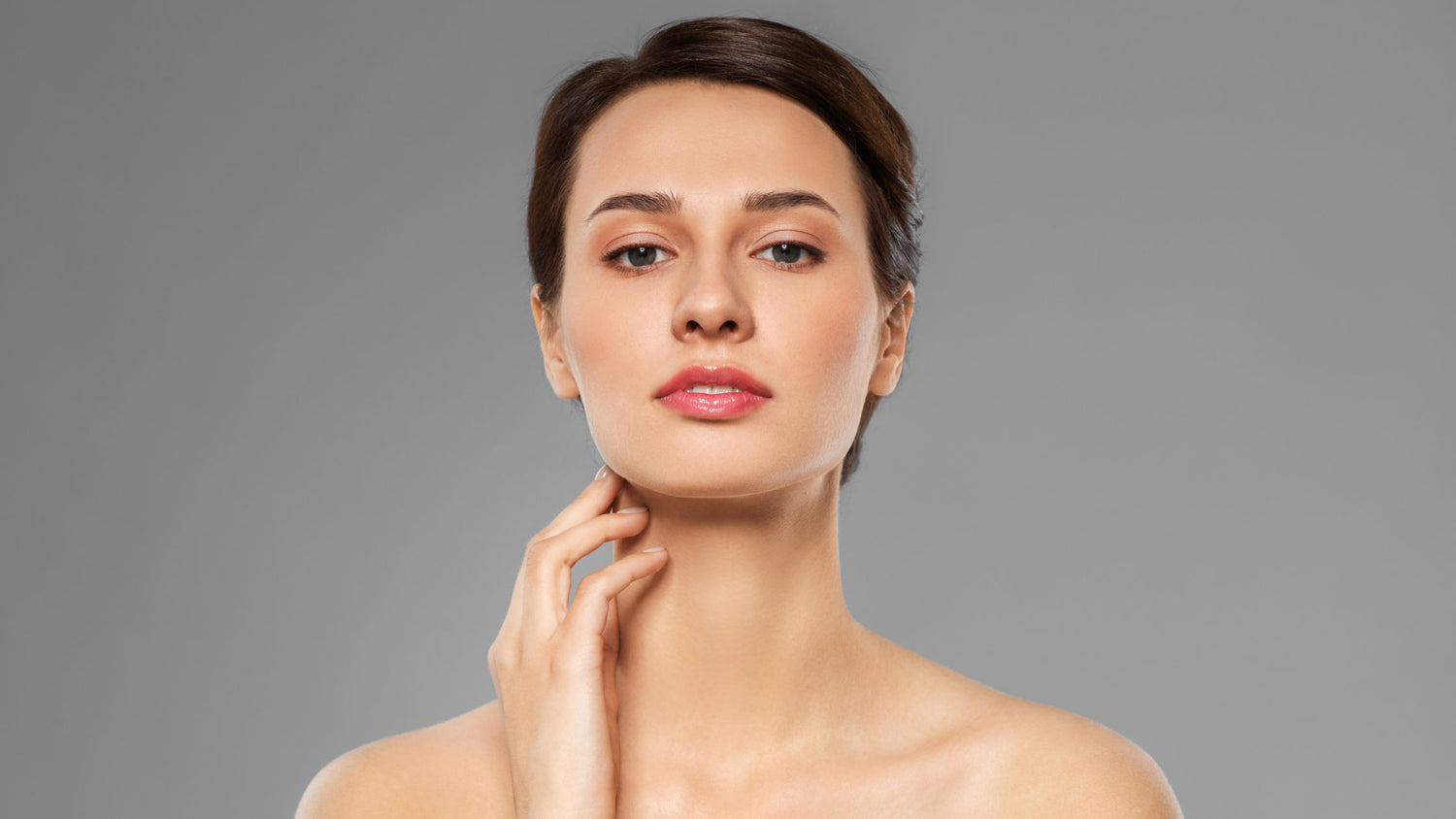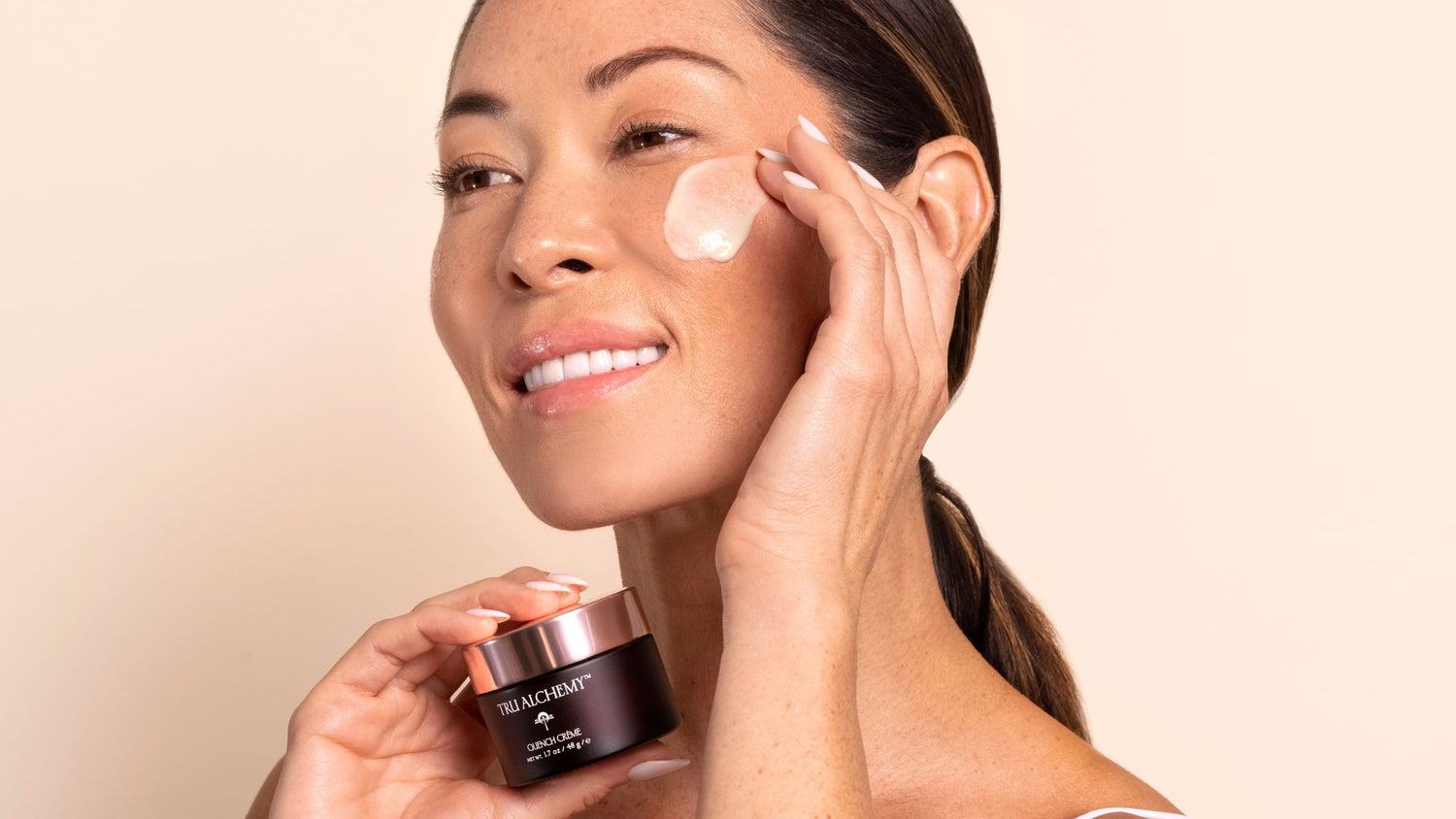
How Blue Light Affects Your Skin
Curtis BradshawIn the world of skincare, health, beauty, and wellness, we’re well-armed with a vast amount of knowledge regarding the harmful effects of UVA and UVB light from the sun. Most of us understand the link between them and do our best to minimize sun exposure.
However, there might be another digital source of light wreaking havoc on our complexion, and we’re carrying it in the palm of your hand. Given how much time we spend indoors on our devices in the modern era, it's pertinent to know.
What Is Blue Light?
Blue light is emitted by indoor lighting and common electronic devices, like computer screens and smartphones. The amount of blue light emitted is minimal, but keeping them close to and in our faces becomes a cumulative issue. It's estimated that a typical eight-hour workday of staring into a screen can amount to about 20 minutes of being in direct sunlight for the skin.
As we spend more and more time than ever before looking at our devices, we need to consider the effects of long-term, low-level exposure.
How Does Blue Light Affect Our Health?
We know that blue light can cause everyday eye strain and occasional fatigue, which can be bad long term. In terms of our beauty sleep, it may even affect our circadian rhythm and hormone production. Blue light might also be linked to higher cortisol, the stress hormone that can disrupt melatonin, the hormone that helps your brain feel sleepy at night. A sleep imbalance can make it harder for you to fall asleep, making you feel groggy and stressed in the waking hours and could lead to other health issues.
How Does Blue Light Affect Skin?
Blue light can penetrate deeper into the skin, and there is thought to be a connection between that exposure causing occasional oxidative stress. There’s concern about whether that stress causes skin collagen and elastin to break down, resulting in everything from pigmentation and sensitivity to an accelerated appearance of aging.

With recent studies being inconclusive, it’s tricky to know if the skin issues you may have are possibly related to blue light exposure. So how can we tell? For example, if you’re struggling with the persistent appearance of hyperpigmentation, despite serums, treatments, and sun protection, you should look at the SPFs you apply and assess how much screen time is involved in your day-to-day life.
How to Protect Your Skin from Potential Blue Light Damage
The best solution to the possible exposure is to simply reduce your screen time! We know that might be easier said than done, as we all spend most days scrolling, browsing, or staring into screens. Here are a few tips for those having trouble cutting back on screen time.
First, you can invest in a blue light shield that fits your laptop or tablet. While it sounds like magic, it simply works by using a special coating on the screen that blocks a particular range of blue light. You can also adjust your phone or laptop settings to dim the brightness or go onto “dark mode” to reduce the amount of blue light being emitted. You can also use headphones, so your phone is not directly in your face, or invest in relatively inexpensive glasses with blue light protective lenses.
If you aren’t already slathering an SPF 50 on your face every day, now is the time. Often people will skip SPF if they’re working from home until they’re about to head outdoors. This is your sign to include a mineral SPF that contains zinc oxide or titanium dioxide into your daily morning ritual. We highly recommend opting for a mineral sunscreen, which will physically block blue light rays from reaching the surface of the skin. Chemical sunscreens that may block UVA and UVB rays do not block blue light rays, so mineral SPFs are essential.
Once you start browsing, you’ll likely come across tons of products that claim to protect against blue light. There’s everything from mists and sprays and serums. The truth is there’s very little evidence to back up those claims, and so they should be taken with a grain of salt. Most skin-care products that claim to block blue light simply contain antioxidants that counter the negative effects of everyday oxidative stress, which can be from UV rays and pollution in addition to blue light.

Can You Minimize Blue Light’s Effect on the Skin?
The number one way to counter them is by incorporating antioxidants into your skincare routine, in tandem with your first line of defense, SPF, of course. Think of antioxidants like vitamin C as your best friend to neutralize the oxidative stress you’re exposed to. Plus, they have their own benefits, like brightening the skin.
We love to do double duty with antioxidants in our skincare ritual with Tru Alchemy’s Glow Serum. This potent concoction has activated Vitamin C and green tea extract known for its antioxidant properties. Together they’ll reveal a vibrant and luminous complexion that promotes the skin’s renewal process through collagen production.
Final Thoughts
In this day and age, when we think about skincare and our overall wellness, we have to consider every facet of our lifestyle in order to create a space for the healthier, happier, more vibrant version of us. That means being diligent about nourishing our skin with the best regimens and looking to tech solutions as well. The best approach to transformation is to find a balance with the demands of our modern lives and address perhaps the core issue, to unplug from our devices a little and live more in the present. As a result, you may find glowing and even-toned skin with a sense of accompanying peace to match.



